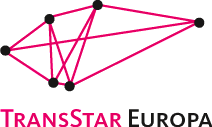The workshop „The Translator and the Publisher of a Literary magazine as a team” with Norbert Wehr (Cologne), Alida Bremer (Münster) and Schamma Schahadat (Tübingen)
On the morning of our second day in Krakow we had the possibility to participate in two of three workshops. During these we were supposed to learn more about cultural administration and its varieties. At one of the workshops an animated discussion arose between Alida Bremer, translator and cultural mediator, Norbert Wehr, publisher of the German literary magazine Schreibheft, and Schamma Schahadat, the discussion leader.
Norbert Wehr talked about the characteristics of his magazine, which was founded in 1977 and of which he is the editor since 1982. He emphasized that literature from all over the world is published in Schreibheft and that, for him, the most important thing is the selection of exclusive texts that are attractive to the readers over a long period of time. The publisher wants his readers to be able to read the magazine as a whole, as if it was an entire book.
To make the discussion interesting in a more practical way for us as young translators, Schamma Schahadat asked Norbert Wehr what a proposal for Schreibheft has to actually look like. He answered that it is important to know the magazine quite well, just to be able to estimate if our proposal would be accepted. Furthermore, it is particularly relevant to hand in sample texts that are in some way related to each other. Of course, we should not forget about adding information concerning the author etc. Finally, Norbert Wehr pointed out that the magazine’s role is not the one of a “boiler”, so we should not think that the publication of our translated texts in Schreibheft does not automatically lead to the publication of the whole novel in a publishing house. Alida Bremer agreed with him and added that, as a translator, the collaboration with a magazine is more pleasant because of the reason Norbert Wehr had just mentioned. For a literary magazine a translator must translate only excerpts of a novel and the time pressure is lower compared to translation work a translator has to handle for a publishing house. Moreover, the translator is also a “transcreator” while writing additional texts for the dossier which are published in the literary magazine.
Both Alida Bremer and Norbert Wehr confirmed that translators and publishers of literary magazines usually work excellent as a team due to the direct interaction without having the literary agent in between. If the (long-standing) collaboration works out in general and also between Alida Bremer and Norbert Wehr, a translator has the possibility to pitch personally preferred authors to the publisher and, in this way, publish texts of these authors in the German-speaking area for the first time.
by Evelyn Sturl


